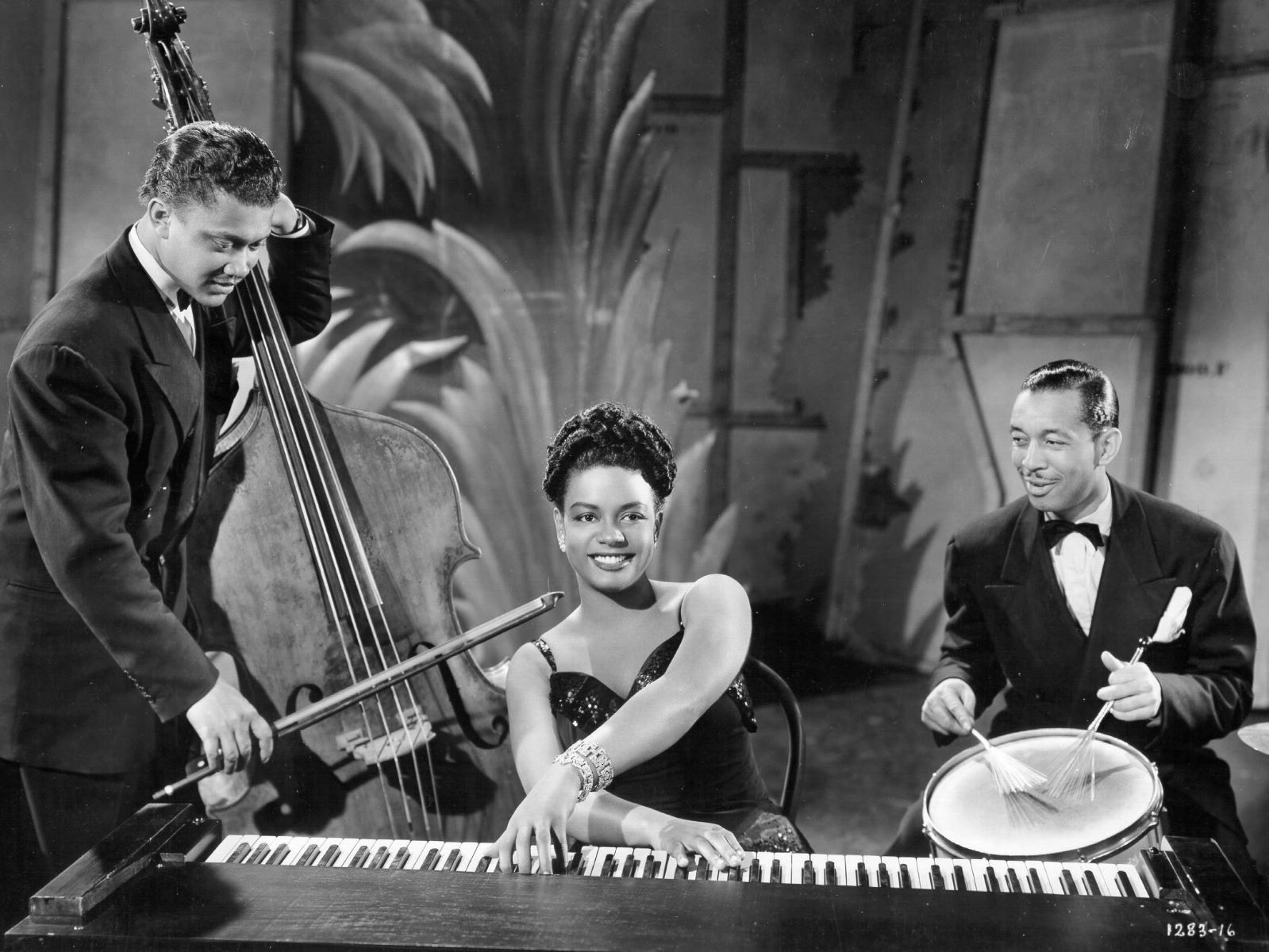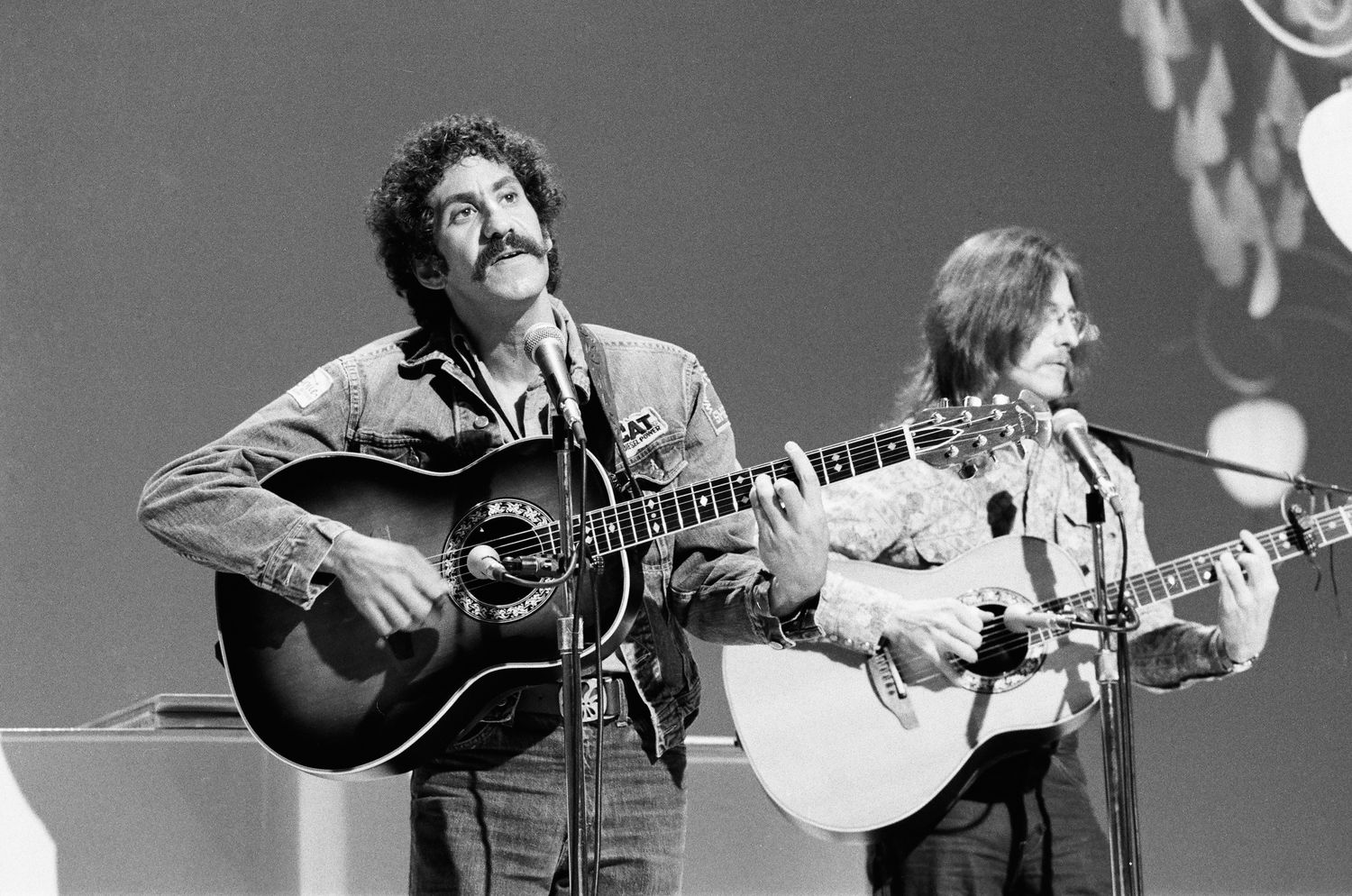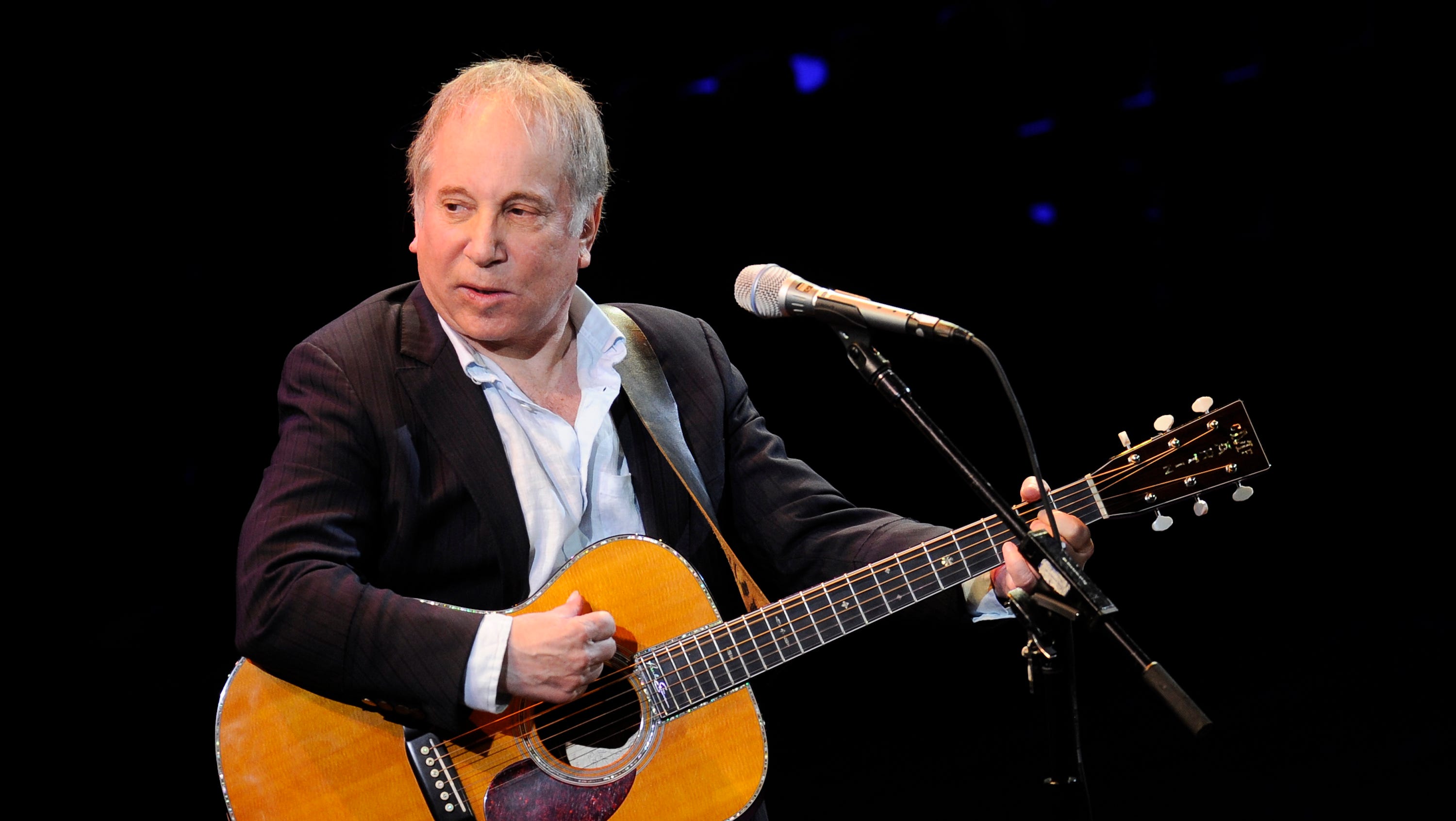Home>Production & Technology>Songwriter>What Is The Singer-Songwriter Genre


Songwriter
What Is The Singer-Songwriter Genre
Published: February 26, 2024
Discover the essence of the songwriter genre, its evolution, and the impact of singer-songwriters on music culture. Explore the artistry and influence of songwriters in contemporary music.
(Many of the links in this article redirect to a specific reviewed product. Your purchase of these products through affiliate links helps to generate commission for AudioLover.com, at no extra cost. Learn more)
Table of Contents
Introduction
The singer-songwriter genre holds a unique place in the music industry, captivating audiences with its raw emotion, introspective lyrics, and soul-stirring melodies. From the intimate setting of a coffeehouse to the grandeur of a sold-out stadium, singer-songwriters have the remarkable ability to forge a deep connection with their listeners through their authentic storytelling and musical prowess.
This genre is characterized by the fusion of heartfelt lyrics and acoustic melodies, often accompanied by minimalistic instrumentation that allows the artist's voice and message to take center stage. The singer-songwriter tradition has a rich history, dating back to the troubadours of medieval Europe who composed and performed their own lyrical ballads.
In the modern era, the singer-songwriter movement gained momentum during the 1960s and 1970s, with iconic figures such as Bob Dylan, Joni Mitchell, and James Taylor paving the way for a new wave of musicians who sought to express their innermost thoughts and emotions through their compositions. This era marked a significant shift in the music landscape, as audiences gravitated towards the authenticity and vulnerability embodied in the singer-songwriter's craft.
As the genre evolved, it embraced a diverse range of musical styles, encompassing folk, rock, pop, and indie influences. Singer-songwriters have continued to push artistic boundaries, infusing their music with personal narratives, social commentary, and universal themes that resonate with audiences across generations.
The singer-songwriter genre remains a powerful force in contemporary music, with a new wave of talented artists carrying on the tradition while adding their own unique perspectives and experiences to the musical tapestry. Whether performing in intimate venues or reaching global audiences through digital platforms, singer-songwriters continue to captivate listeners with their ability to distill the complexities of the human experience into poignant, unforgettable songs.
In the following sections, we will delve deeper into the origins, characteristics, notable figures, and lasting influence of the singer-songwriter genre, shedding light on its enduring appeal and cultural significance.
Origins of the Singer-Songwriter Genre
The roots of the singer-songwriter genre can be traced back to ancient traditions of oral storytelling and musical expression. Throughout history, individuals who possessed the dual talents of composing original music and penning heartfelt lyrics have left an indelible mark on the cultural landscape. One of the earliest embodiments of this archetype can be found in the troubadours and minstrels of medieval Europe, who traveled from town to town, sharing their original compositions with enraptured audiences. These wandering poets and musicians crafted lyrical ballads that spoke of love, loss, chivalry, and the human experience, setting the stage for the emergence of the singer-songwriter as a distinct artistic persona.
The modern incarnation of the singer-songwriter genre took shape during the folk revival of the 1960s, a period characterized by social upheaval, political activism, and a yearning for authentic, unvarnished expression. Artists such as Bob Dylan, Joan Baez, and Pete Seeger became emblematic figures of this movement, using their music as a vehicle for social commentary and personal introspection. Their compositions resonated with a generation seeking to make sense of a rapidly changing world, and their influence reverberated across the musical landscape.
As the singer-songwriter ethos gained momentum, it transcended the confines of folk music and permeated other genres, including rock, pop, and country. Singer-songwriters such as Joni Mitchell, Leonard Cohen, and Carole King emerged as luminaries in their own right, crafting evocative, deeply personal songs that struck a chord with audiences worldwide. Their willingness to lay bare their innermost thoughts and emotions set a new standard for authenticity in popular music, inspiring a legion of aspiring artists to follow suit.
The singer-songwriter genre continued to evolve, embracing a spectrum of styles and voices that reflected the diversity of human experience. From the confessional intimacy of James Taylor's acoustic ballads to the poetic lyricism of Patti Smith's punk-infused anthems, the genre expanded to encompass a myriad of artistic expressions. In the process, it became a vessel for individual and collective narratives, serving as a mirror to society's triumphs, struggles, and aspirations.
In essence, the origins of the singer-songwriter genre are deeply intertwined with the human impulse to create, connect, and communicate through music. This tradition, rooted in the ancient lineage of troubadours and minstrels, has endured and flourished, shaping the musical landscape and touching the hearts of listeners across generations. The singer-songwriter's journey, from the solitary act of composition to the communal experience of performance, continues to be a testament to the enduring power of authentic storytelling and the enduring resonance of the human voice.
Characteristics of Singer-Songwriter Music
The singer-songwriter genre is distinguished by a myriad of defining characteristics that set it apart as a unique and compelling form of musical expression. At its core, singer-songwriter music embodies a profound sense of intimacy and authenticity, drawing listeners into the artist's inner world through evocative storytelling and soul-stirring melodies.
1. Introspective Lyrics
Central to the singer-songwriter tradition are introspective, often deeply personal lyrics that delve into the artist's innermost thoughts, emotions, and experiences. Whether exploring themes of love, heartbreak, resilience, or societal commentary, singer-songwriters have a remarkable ability to distill complex human emotions into poignant, relatable verses that resonate with audiences on a profound level.
2. Soul-Stirring Melodies
Accompanying the heartfelt lyrics are soul-stirring melodies that serve as the emotional backbone of singer-songwriter music. Often rooted in acoustic instrumentation, these melodies possess a raw, unvarnished quality that allows the artist's voice and message to take center stage, creating an immersive sonic experience that lingers in the listener's heart and mind.
3. Authentic Storytelling
Singer-songwriters are revered for their ability to weave authentic, compelling narratives that transcend the boundaries of time and space. Through their compositions, they invite audiences into their world, offering glimpses of universal truths and personal revelations that foster a deep sense of connection and empathy.
4. Minimalistic Instrumentation
Many singer-songwriter compositions feature minimalistic instrumentation, placing emphasis on the artist's voice and lyrical prowess. This stripped-down approach allows for an unfiltered, unadorned musical experience, enabling the artist's message to resonate with clarity and emotional resonance.
5. Vulnerability and Empathy
A hallmark of singer-songwriter music is the artist's willingness to embrace vulnerability and empathy, creating an atmosphere of emotional openness and honesty. This authenticity fosters a profound connection between the artist and the audience, forging a sense of shared humanity and understanding.
In essence, the characteristics of singer-songwriter music converge to form a rich tapestry of emotional depth, introspective storytelling, and genuine human connection. Through their compositions, singer-songwriters invite listeners on a transformative journey, offering solace, inspiration, and a profound reflection of the human experience.
Notable Singer-Songwriters
The singer-songwriter genre has been graced by an array of remarkable talents whose contributions have left an indelible mark on the musical landscape. These artists have not only shaped the evolution of the genre but have also touched the hearts and souls of audiences worldwide. Their introspective lyrics, soul-stirring melodies, and unwavering commitment to authentic storytelling have elevated the singer-songwriter tradition to new heights, inspiring generations of musicians and listeners alike.
Bob Dylan
Bob Dylan stands as a towering figure in the singer-songwriter pantheon, renowned for his poetic lyricism and profound impact on popular music. His iconic compositions, including "Blowin' in the Wind" and "The Times They Are a-Changin'," served as anthems for social change and cultural revolution during the 1960s. Dylan's ability to blend folk, rock, and protest music into a singular, influential voice solidified his status as a trailblazer in the singer-songwriter genre.
Joni Mitchell
Joni Mitchell's unparalleled artistry and visionary songwriting have cemented her as a luminary in the singer-songwriter realm. With albums such as "Blue" and "Court and Spark," Mitchell captivated audiences with her candid reflections on love, longing, and the human experience. Her innovative guitar tunings, poetic lyrics, and ethereal vocals have left an enduring imprint on the genre, inspiring countless artists to embrace vulnerability and emotional depth in their own compositions.
Carole King
Carole King's contributions to the singer-songwriter genre are nothing short of transformative. Her album "Tapestry" remains a touchstone of introspective, confessional songwriting, featuring timeless classics like "You've Got a Friend" and "It's Too Late." King's gift for crafting relatable, emotionally resonant melodies has earned her a place among the most influential singer-songwriters of all time, and her impact continues to reverberate across the musical landscape.
James Taylor
James Taylor's soulful voice and evocative songwriting have made an indelible mark on the singer-songwriter tradition. With hits such as "Fire and Rain" and "You've Got a Friend," Taylor's introspective lyrics and gentle, acoustic melodies have resonated with audiences for decades, earning him widespread acclaim and adoration. His ability to distill complex emotions into accessible, heartfelt compositions has solidified his legacy as a masterful storyteller and musician.
Patti Smith
Patti Smith's fearless, unapologetic approach to songwriting has positioned her as a trailblazer in the singer-songwriter genre. Her seminal album "Horses" challenged conventions and redefined the possibilities of lyrical expression in rock music. Smith's raw, poetic verses and uncompromising spirit have inspired generations of artists to push artistic boundaries and fearlessly embrace their unique creative visions.
These notable singer-songwriters, among many others, have shaped the singer-songwriter genre into a rich tapestry of introspection, authenticity, and emotional resonance. Their enduring influence serves as a testament to the power of music to transcend boundaries, connect people, and illuminate the depths of the human experience.
Influence of the Singer-Songwriter Genre
The influence of the singer-songwriter genre extends far beyond the realms of music, permeating the cultural, social, and emotional fabric of society. At its core, the genre's profound impact lies in its ability to forge deep, empathic connections with audiences, fostering a sense of shared humanity and understanding. Through introspective lyrics, soul-stirring melodies, and authentic storytelling, singer-songwriters have transcended mere entertainment, becoming catalysts for introspection, empathy, and social change.
One of the most notable aspects of the singer-songwriter genre's influence is its role as a mirror to society's triumphs, struggles, and aspirations. Singer-songwriters have served as chroniclers of their times, capturing the zeitgeist and distilling it into timeless compositions that resonate across generations. Their ability to address universal themes such as love, loss, resilience, and social justice has empowered listeners to confront their own experiences and emotions, fostering a sense of communal empathy and understanding.
Moreover, the genre's influence extends to the realm of activism and social change. Throughout history, singer-songwriters have used their music as a powerful tool for advocacy, shining a spotlight on pressing social issues and advocating for positive transformation. From Bob Dylan's anthems of protest to Tracy Chapman's poignant reflections on inequality, singer-songwriters have leveraged their platform to amplify marginalized voices and inspire meaningful dialogue and action.
Furthermore, the singer-songwriter genre has left an indelible mark on the broader musical landscape, shaping the evolution of popular music and inspiring countless artists across genres. Its emphasis on authenticity, vulnerability, and emotional resonance has permeated diverse musical styles, influencing the way artists approach songwriting, performance, and artistic expression. The enduring legacy of singer-songwriters can be seen in the work of contemporary musicians who continue to draw inspiration from the genre's ethos, infusing their own compositions with introspection, empathy, and a commitment to genuine storytelling.
In essence, the influence of the singer-songwriter genre transcends the confines of music, leaving an enduring imprint on the human experience. Its ability to foster empathy, introspection, and social consciousness underscores the profound impact of art on society, affirming the genre's status as a transformative force that resonates far beyond the confines of a song or a performance.
Conclusion
In conclusion, the singer-songwriter genre stands as a testament to the enduring power of authentic storytelling, introspective lyricism, and soul-stirring melodies. From its ancient roots in the traditions of troubadours and minstrels to its evolution into a diverse, influential movement, the singer-songwriter genre has woven a rich tapestry of human emotion, empathy, and connection.
The genre's origins, characterized by the troubadours and minstrels of medieval Europe, laid the groundwork for a tradition that would endure and flourish across centuries. The modern incarnation of the singer-songwriter genre, marked by the folk revival of the 1960s, ushered in a new era of introspective, socially conscious music that resonated with audiences seeking authenticity and emotional depth.
The characteristics of singer-songwriter music, including introspective lyrics, soul-stirring melodies, and authentic storytelling, have fostered a profound sense of intimacy and connection between artists and audiences. This raw, unfiltered approach to musical expression has transcended the boundaries of genre, influencing the broader musical landscape and inspiring countless artists to embrace vulnerability and genuine human connection in their own compositions.
Notable singer-songwriters such as Bob Dylan, Joni Mitchell, Carole King, James Taylor, and Patti Smith have left an indelible mark on the genre, shaping its evolution and inspiring generations of musicians to follow in their footsteps. Their contributions have enriched the musical canon and elevated the singer-songwriter tradition to a revered status in the cultural tapestry of music history.
The influence of the singer-songwriter genre extends far beyond the confines of music, permeating the realms of social activism, cultural reflection, and emotional resonance. Singer-songwriters have served as catalysts for introspection, empathy, and social change, using their compositions to address universal themes and advocate for positive transformation.
In essence, the singer-songwriter genre remains a powerful, transformative force in contemporary music, embodying the timeless qualities of authenticity, vulnerability, and human connection. As audiences continue to seek genuine, emotionally resonant music that speaks to the depths of the human experience, the singer-songwriter genre stands poised to continue its legacy of captivating hearts and minds with its evocative storytelling and soul-stirring melodies.











